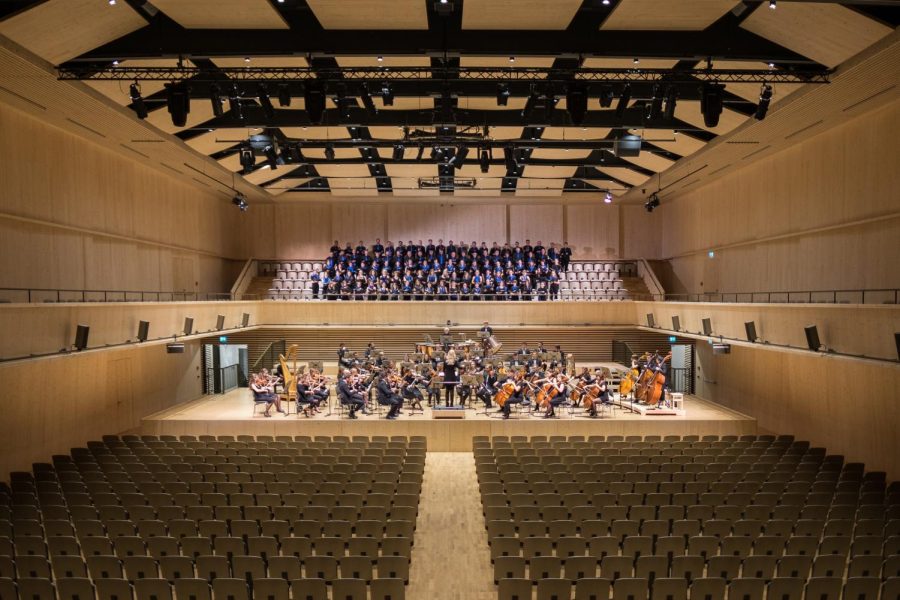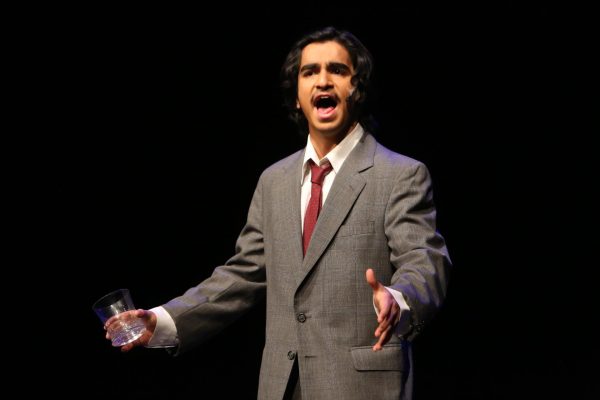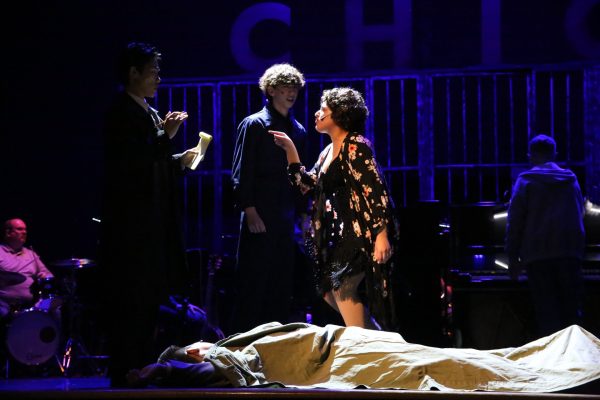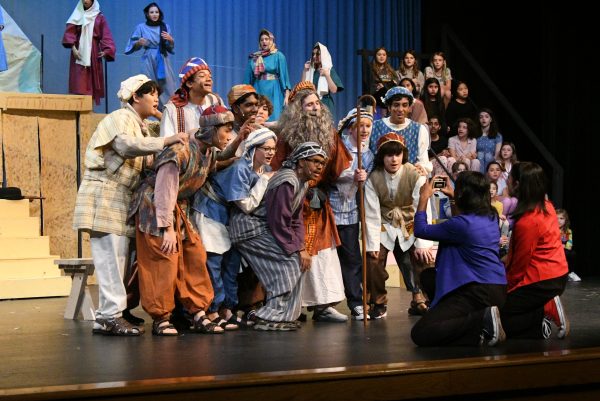Mustangs Go To Yearly Adjudications
During the week of March 14th, the Marriotts Ridges’ music ensembles attended their annual music assessments, where they performed and were given feedback from their assigned music clinicians. The return to in-person learning and rehearsals this year has marked the return of the county-wide competitions, as well as the opportunity to perform and work alongside musical clinicians at the assessments.
Multiple changes have been made to the process in order to adjust the level of difficulty the adjudications hold due to the long break the ensembles have had from being assessed.
“This is my first assessment back from covid, but from what I know things are different this year. This year, every school is performing on their home stage while the judges will move from place to place,” sophomore Aaron Kim said.
In addition to a change in set up, the assessment itself has seen modifications.
“There’s no sight reading and no rating this year for the assessments, in other words, there’s no official scoring. In previous assessments, all participating choirs would receive a score based on their performance,” senior Hashini Amarasinghe said.
Although covid related restrictions have lifted some pressure off of students’ backs, these yearly assessments still hold a significant place in students who’ve worked hard alongside their peers this year. The familiar feelings of nervousness, anticipation, and the expectations of the musicians at Marriotts Ridge have made their rehearsals more productive in preparation for their respective adjudication dates.
“Past assessments have gone really well for the groups that I’ve been a part of! I am confident the Madrigals will do well. I’m hoping we can pull through,” senior Riley Savage said.
Due to recent complications with scheduling, the ensembles were given some leniency when it came to their critiques. The stage was filled and its lights were lit up like in years past, but it’s all up to the ensembles to give a performance their judges would have found musically and technically executed to perfection.
“A good performance is a well balanced orchestra that knows what it’s playing and is well prepared. Good tempo, rhythm, intonation, and dynamic are all basic requirements, in my opinion, for a decent performance. Preparation is just another word for practice, which is something that we’ve all been working hard at,” Kim said.
As Kim says, with hard work comes well-deserved results at the music assessments. The assessments also provided a chance for the ensembles to impress their music clinicians and teachers to receive valuable feedback and critique in return, highlighting the benefits of the assessments.
“The assessments are so important! It teaches us discipline and precision when learning/performing the music. It forces us to hold ourselves accountable for mistakes and teaches us how to fix them,” Savage said.
Throughout all of the challenges this year had to offer, their hard work and dedication seems like more than enough to carry them through their showings on stage. The excitement and determination that the students encapsulated was something that surely shined through the plentiful hours spent and the copious amounts of instruments played.

Hi, I’m Alex Hwang and I’m a Sophomore here at MRHS. This is my first year of Journalism, and I may not have much experience in writing news articles,...












